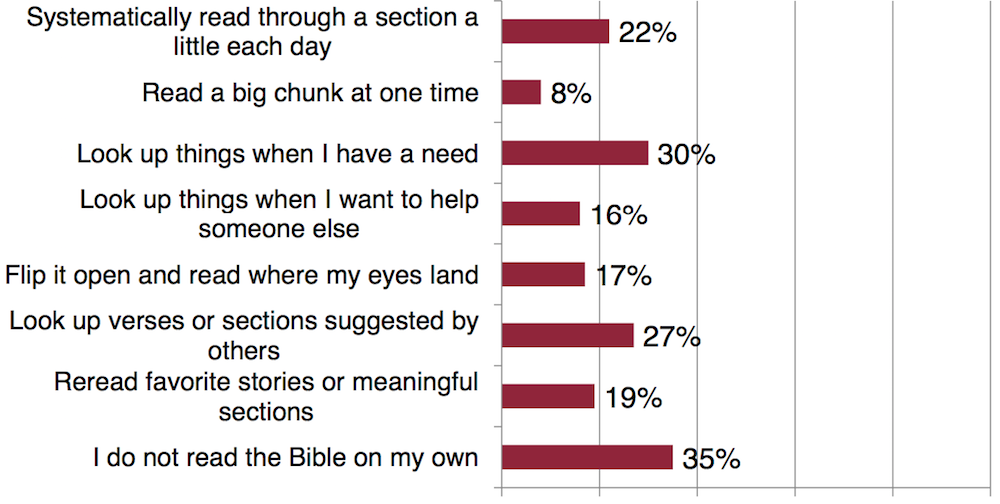“The Bible ought not to be torn limb from limb, and its joints hung up like meat in the shambles.”
This last week, as I was writing a sermon on the end of Colossians, I came across these stark words from Charles Spurgeon, aka the Prince of Preachers. It’s from a sermon that he preached on December 14, 1873. Let’s keep on reading,
Beyond all other books it will bear dissection, for it is vital in every sentence and word. Since it is a mosaic of priceless gems, you will be enriched even if you extract a jewel here and there, but to behold its divine beauty you must contemplate the mosaic as a whole. No idea of the magnificent design of the entire Scriptures can enter the human mind by reading it in detached portions, especially if those separated passages are interpreted without reference to the run of the writer’s thoughts. Let Scripture be read according to the rules of common sense and that will necessitate our reading through a book and following its train of thought. Thus shall we be likely to arrive at the mind of the Holy Spirit. I say this because I may have to disturb your idea of the meaning of a passage of Scripture this morning, for a short time. But you need not be alarmed, for after I have disturbed, I shall, most probably, confirm it. I shall pull down to build up again.
The Bible is a wonderful gift from God. It’s His words to us. Simultaneously it’s history, poetry, wisdom, prophecy, and the Gospel. It’s not lacking in anyway, and does not have to be added to. It’s complete, never changing, and irreplaceable.
So why is the Bible so neglected?
Why do almost nine out of ten American households own a Bible, but more than half have read little or none of it? Why do “less than a quarter of those who have ever read a Bible have a systematic plan for reading the Christian scriptures each day”? And why is it that “a third of Americans never pick it up on their own”?
This research is from a study that LifeWay Research conducted among Americans and their views of the Bible.
Is it because we don’t see the Scriptures as they truly are—as the true, inerrant, and infallible word of God? Or, as Charles Spurgeon put it, “a mosaic of priceless gems”?
Perhaps.
Among those surveyed, more than half saw the Bible as a good source of morals, while only a third saw it as true and/or life-changing.
When asked “Why have you not read the Bible more?” 27% said they don’t prioritize it, 15% said they don’t have time, and 13% said they have read enough of it.
I love research and all of this is fascinating, but here’s what stood out to me the most…
…the following responses on how people approached reading the Bible on their own:
Here’s a chart from the research (you can click on the image to read the full report).
If this is how individuals are approaching the Scriptures, no wonder the majority see it as a good source of morals. It’s like a coffee table book, or one of the Chicken Soup for the Soul books.
If all we do is read a verse here and a verse there, or a devotional where it’s 10% Scripture and 90% someone else’s reflections on that verse of Scripture, we’re doing what Charles Spurgeon so aptly said—we’re tearing the Scriptures limb from limb, and hanging up its joints like meat in the shambles.
Yes, it’s important that we dig into the meaning of each and every sentence and word, “but to behold its divine beauty you must contemplate the mosaic as a whole.” Isn’t that why Charles Spurgeon went onto say this? “No idea of the magnificent design of the entire Scriptures can enter the human mind by reading it in detached portions, especially if those separated passages are interpreted without reference to the run of the writer’s thoughts.”
When digging deeper into the research, I was surprised to see that those between the ages of 18-24 were the most likely age group to have read none of the Scriptures.
This is alarming. Especially since reading the Bible regularly while growing up was the greatest predictor for spiritual health as a young adult, according to another study by LifeWay Research.
So what does this mean? And what can we do about it?
1. Spend time systematically reading through the Scriptures
Don’t just randomly open it up and point to a verse. Read through books of the Bible, or chapters at a time. In fact, I’d encourage you to start with Psalm 19. And here’s a sermon I preached on that passage recently.
2. If you’re a preacher, make the Bible accessible
And stop overusing Greek and Hebrew—especially when it’s unnecessary. Here’s an article I wrote on the why behind that statement and three ways you can normalize Bible reading in your church.
3. Get into community and talk about the Scriptures with others
I’ve seen many community groups/small groups/life groups/Sunday school classes (or whatever you want to call them), focus more on the stuff of life, than the stuff of Scriptures. Start with the Scriptures and you’ll end up talking about how to apply it to your life. But if you start with life, you may or may not ever get to the Scriptures.
If you would like to learn how to make Bible reading and other core spiritual practices a key part of your ministry, check out my book, No Silver Bullets: Five Small Shifts that will Transform Your Ministry.

